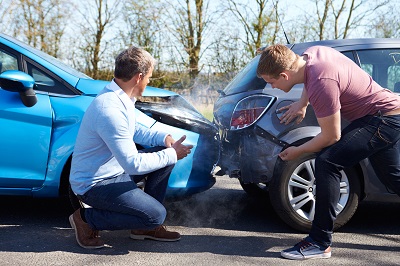SUNDAY, OCTOBER 1, 2023
Car accidents are scary no matter if they’re small fender-benders or multi-car crashes. If you are involved in an accident of any kind, it is important to have the damage assessed by a professional. But what happens in a large crash? How do you know when your car will be declared as totaled?
There are a few obvious signs that may hint to your vehicle being totaled, such as excessive fluid leaks and the inability to drive because the vehicle won’t start. Some of these issues can be fixed, however, so a temporary inability to use your vehicle doesn’t necessarily mean that it is totaled. Instead, the way of determining if your vehicle is totaled has to do with the value of your vehicle. 
Damages vs Value of the Vehicle
In most cases, an insurer will consider the actual cash value of your vehicle when determining whether or not a vehicle is totaled. The actual cash value (ACV) of your vehicle is determined by your car’s mileage, age, condition, and additional parts that may add to its value. The claims adjuster may then compare the value of your car with those of similar model in your same area.
This is then compared to the damages your vehicle has faced in the accident. Say the damages to your vehicle cost $1,000 to repair, which is significantly less than the value of your vehicle. So long as the repairs are manageable, your vehicle may not be declared as totaled.
However, say the cost of repairing your vehicle is significantly more than the value of your vehicle. If it would cost more to repair your vehicle than to replace it, your vehicle may be declared as totaled. This is because it may be cheaper for the insurer to offer compensation toward a new vehicle rather than repairs on the current vehicle.
This also applies to the insurance on your vehicle. Some insurance providers will not cover a vehicle that would cost more to insure than to replace. Be sure to keep track of the value of your vehicle when it comes to insurance. It can help you anticipate when your vehicle may be declared totaled after an accident. Keep in mind that the insurance provider has the final say in whether or not your vehicle is totaled, however. Maintain your vehicle’s records to make the claims process quicker and easier.
No Comments
Post a Comment |
|
Required
|
|
Required (Not Displayed)
|
|
Required
|
All comments are moderated and stripped of HTML.
|
|
|
|
|
|
NOTICE: This blog and website are made available by the publisher for educational and informational purposes only.
It is not be used as a substitute for competent insurance, legal, or tax advice from a licensed professional
in your state. By using this blog site you understand that there is no broker client relationship between
you and the blog and website publisher.
|